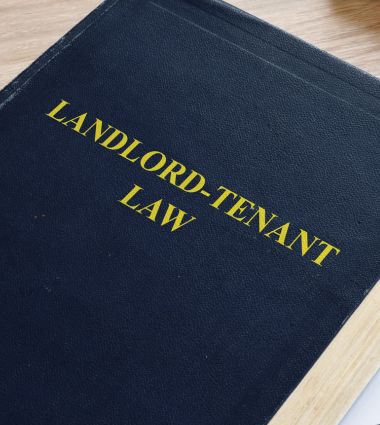Title vs. Deed: What's The Difference?
To know the real estate terms in-depth can be important when dealing with property transactions. One thing that can be difficult to comprehend is the difference between a title and a deed.
Although these terms are often used interchangeably, they have specific legal meanings. A title represents the legal rights to a piece of property, but a deed is a physical document that proves the ownership of that property.
In this blog, we will explain these concepts in a clear and simple way, so you can understand their unique roles in real estate. You can evaluate ownership rights, transfer requirements, and liability issues correctly with this knowledge.
With examples drawn from Canadian property law, this article will explain the key differences between title vs. deed. Upon completion, you will be able to distinguish between the two and how to interpret them accurately.
What Is a Title in Real Estate?
A title refers to a legal document that proves ownership rights over a property in real estate. It serves as evidence that an individual has a legitimate claim to own, use, transfer, or otherwise control an appointed piece of land or real estate.
A title grants the legal owner certain rights and responsibilities tied to the property and in Canada, having a title does not necessarily mean full, unrestricted ownership - it may be subject to limitations like mortgages, easements, or hindrances.
While often confused, a title and deed are distinct concepts in real estate transactions. A deed is a physical legal document used to convey ownership from one party to another. On the other hand, the complete bundle of rights over the property is represented by the title.
Think of it this way - the deed simply transfers ownership, while the title confines all the rights, responsibilities, and limitations tied to that property. A deed is recorded to establish a clear chain of title.
Types of Titles
There are different types of property titles recognized in Canadian real estate:
- Fee simple - An outright, freehold ownership interest with no time limits. This is the highest form of private ownership.
- Leasehold - Grants rights to use the property for a specified rental period. The actual ownership remains with the lessor.
- Life estate - Gives an individual the right to use the property until death, after which ownership transfers to a designated beneficiary.
Due Diligence Is Key
When thinking about buying a property, it's important to understand the property title and any associated restrictions along with it. Working with an experienced real estate lawyer in Canada can help you completely understand the property you are buying and any limitations on the title.
It's recommended to conduct a title search to identify any issues, restrictions, or liabilities that may affect the ownership. This thorough investigation helps the buyer and ensures the reliability of the real estate transaction.
What Is a Deed in Real Estate?

A deed is a binding legal document in real estate transactions. It acts as verifiable proof of the transfer of property ownership from the grantor, or seller, to the grantee, or buyer.
In Canada, proving legitimate ownership and control of a piece of land or other property is mostly dependent on deeds.
Definition and Purpose
An official written document known as a deed is used to transfer ownership rights and interests in real estate. Its main objective is to formally transfer real estate's title or claim from its present owner to a new one.
The deed outlines the specific details of the property being transferred, including its legal description, boundaries, and any associated rights or restrictions.
Types of Deeds in Canada
There are several types of deeds commonly used in Canadian real estate transactions:
- Warranty Deed: Provides the highest level of protection, as the grantor guarantees clear title and the right to transfer ownership.
- Quitclaim Deed: Used to transfer any remaining interest the grantor has in the property, without providing any guarantees or warranties.
- Grant Deed: Similar to a warranty deed but with fewer guarantees from the grantor.
Deed Requirements and Registration
For a deed to be legally valid in Canada, it must meet specific requirements outlined by provincial and territorial laws. These typically include:
- Proper identification of the parties involved (grantor and grantee)
- A legal description of the property
- The grantor's signature was witnessed and notarized
- Compliance with local regulations and fees
Once executed, deeds must be registered or recorded with the appropriate land titles or registry office to establish the new ownership on public record.
The Role of Real Estate Lawyers
Because of the legal challenges involved, it is advisable to seek legal advice from an expert real estate lawyer in Canada. They can ensure that as the buyer or the seller, you observe all the legal requirements while transferring the deed.
Reputable firms have vast expertise in handling property transactions and understanding the complexities of deeds and title transfers.
By understanding the importance of deeds and working with qualified legal professionals, you can confidently understand the real estate landscape and secure your property ownership rights in Canada.
Key Differences Between Title and Deed in Canada
Real estate transactions in Canada require an understanding of the difference between a title vs. deed. These terms are often used interchangeably, but they represent two separate legal concepts. Let's explore their differences.
Title: The Legal Ownership Rights
The title is a legal term that is normally used to indicate the claim that one has over a particular piece of land.
The title affirms your ownership of the property and gives you legal permission to use, transfer, or dispose of it as you like. The title is a legal concept that is documented and maintained in the province by the land registry offices.
In Canada, the land title system varies between provinces. Most provinces follow the Torrens system, which provides a government-backed guarantee of ownership. Quebec operates under the allodial system, where land ownership is considered absolute and not subject to any superior authority.
Deed: The Physical Document of Transfer
On the other hand, a deed is a written document that serves as evidence of the transfer of ownership from one individual to another. It is an official paper that outlines the transfer of property, the people involved, and any restrictions or limits.
In Canada, property transfers typically involve real estate lawyers or legal staff when preparing deeds. In order to be legally binding, specific legal requirements must be followed and the documents must be officially filed at the correct Land Registry Office.
Key Differences in a Nutshell
- A title is a legal concept that represents ownership rights, while a deed is a physical document that transfers ownership.
- A title is intangible and recorded in the land registry, whereas a deed is a tangible, written instrument.
- A title is maintained by provincial land registry offices, while a deed is prepared and registered by legal professionals during the conveyancing process.
- The title system varies between provinces, with Quebec following the allodial system and the rest of Canada using the Torrens system.
It's necessary to team up with the best real estate lawyer in Canada when purchasing or selling a property who can guide you through the process and ensure that all legal requirements are fulfilled.
Why Hire a Real Estate Lawyer in Canada?

It can be difficult to understand the legal aspects of real estate transactions. Hiring a real estate lawyer in Canada can prove invaluable as they possess the expertise and knowledge to guide you through the process and ensure your interests are protected.
Legal Expertise and Guidance
In Canada, a real estate lawyer is knowledgeable about the legal regulations that apply to the real estate industry. These experts are able to provide legal guidance for you to make informed choices and prevent mistakes.
A skilled real estate lawyer serves as your legal counsel throughout the entire process, from reviewing the contract to identifying possible risks or concerns.
Smooth and Efficient Transactions
Buying or selling a piece of land involves a substantial amount of documentation and legal agreements. A real estate lawyer can carefully examine and create these documents to guarantee they are accurate, thorough, and comply with all legal standards. This attention to detail can prevent costly delays and allow a smooth, efficient transaction.
Negotiation and Advocacy
When it comes to structuring the terms of a real estate transaction, having a good negotiator on your side can be beneficial. A real estate lawyer can negotiate on your behalf to ensure you get the best terms as well as ensure that your rights as the buyer or seller are upheld. Their expertise and experience can help you achieve the best result.
Peace of Mind and Protection
If you want to invest in real estate, it's important to protect your interests by having proper legal safeguards in place. Hiring a real estate lawyer in Canada can help your investment be protected and give you peace of mind. These experts can help you understand legal obstacles, minimize risks, and safeguard your investment.
Whether you're a new homebuyer, an experienced investor, or a seller looking to maximize profits, choosing the best real estate lawyer in Canada can make a significant difference. Their knowledge, attention to detail, and commitment to your needs can lead to a smooth and successful real estate transaction.
FAQs: Title vs. Deed: What's the Difference?
What is the primary difference between a title and a deed?
A title represents legal ownership of a property, while a deed is a physical document that transfers ownership from one party to another.
Can you have a title without a deed?
No, you cannot have a title without a deed, because the deed is required to prove and transfer the ownership documented by the title.
Why are both a title and a deed important in real estate transactions?
Both are important because the deed legally transfers ownership and the title confirms the rightful ownership, confirming the transaction's legality and clarity.
Real Estate
Family Law
Wills & Estates
Immigration
Join Our Mailing List.
Sign up with your email to receive our newsletter and stay informed about the latest legal developments and special offers.



















































































